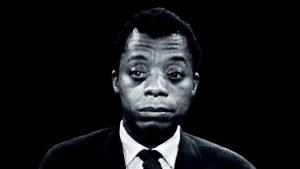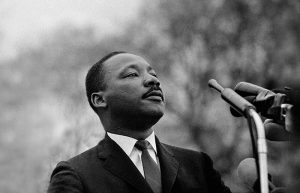(THIS ARTICLE IS MACHINE TRANSLATED by Google from Norwegian)
There is so much we forget in our time. We have all imaginable information available, all the time, anywhere, but we still tend to forget the most important things. Or maybe it is therefore we become so forgetful, since we have an "extra brain" in the computer or phone and think that what we need to remember can be stored there?
I do not know, but I am afraid we have not realized that the most important knowledge a person can hold, which is usually not described as "information". That much of what gives life meaning and direction is something we must have in us, be, or at least strive towards. Much of the most important thing in life is with how we relate to what we know how to do and how we relate to others.
 Much is about emotions, emotions that bind us together and allow us to see others who – though different from us – become visible as vulnerable people we can recognize, through empathy, solidarity. Friendship, love.
Much is about emotions, emotions that bind us together and allow us to see others who – though different from us – become visible as vulnerable people we can recognize, through empathy, solidarity. Friendship, love.
Uncompromising and truthful
To remember, we need role models. Examples that provide examples of how we should, or perhaps should, think and feel. I get a strong urge to say this and talk about role models when I watch the movie I Am Not Your Negrobecause when I witness James Baldwin – and hear what he says, watching his body move, engaged, passionate, inflexible – there is a natural wholeness in his person, his way of life, which is just admirable. Why? Because he has a relationship with truth that is direct, sincere and uncompromising. Because he has seen something he cannot pretend he has not seen. Because he takes the consequence of what he knows, regardless. He knew the history of the blacks – he was friends with Martin Luther King, Malcolm X and Medgar Evers, who were all shot because they fought for the rights of blacks.
We have to start looking hamis her. What do you see? Whose do you see? What can du change? Where can du start the job?
Baldwin had a tremendous ability to think the truth based on who has power and who does not, and gains the power of what he says from his own experience. From what he has sett. Its nothing thought in what he thought.
Anchored in experience
It's a costly scene in I Am Not Your Negro, where Baldwin participates in an episode of The dick cavett show (from 1968) and talks about the future of blacks and American society. It is the responsibility of the American people to do something about segregation in society, Baldwin claims. The reason it exists is that ordinary people look away, that they do not want to know what is happening outside the immediate horizon. Most people just want to be safe and have enough to feed themselves and their families. They don't want trouble.
But Baldwin maintains that it is civil society that is responsible. When most people are thoughtless – as Hannah Arendt called Adolf Eichmann – the injustice will just continue.
Philosophy and reality
Along the way, which has had the temperature set by Baldwin, a third guest arrives, namely Paul Weiss, a professor of philosophy at Yale University.
In the wake of Baldwin, who talks directly and uncovered about segregation in the United States, Weiss claims that Baldwin is overly categorical. It's not as big a distinction between blacks and whites as you should have it, he says. Identity is more "hybrid", community more "fluid," Weiss says, and might as well have been a postmodern theorist where he sits.
"I have much more in common with a black professor of philosophy than a white who has never read a book – and you have more in common with a white literature than blacks who do not read books," he says. "It's becoming one man it's about."
(Director: Truls Lie, Berlin, Ny Tid.)
Truthful frame
For Baldwin, it's not that simple. He has never seen anything like the idealism Weiss speaks of. "Becoming a man," Weiss talks about, "can get a black man killed," says Baldwin, who has now taken fire. It is an intense and burning force in this way of cutting through the argument, for Baldwin establishes a strong connection to the experienced reality with which the philosophy professor has no connection whatsoever.
Thinking like this, rooted in the lived reality of a community, is a good guideline and correction for high-flying thinking. For there are many who think away from the suffering of the other. No, we should not stop thinking advanced and embroider academies, Baldwin suggests, but real inequality in social reality should provide a framework for the conversation about what a human being is and how we should live together.
 Black lives matter. Baldwin's previous speech resonates strongly with today's Black Lives Mattermovement and Trump's resentment, yes, outright indifference, to this one. Talking about making the police stronger, as Trump does, without including the mistreatment of blacks in recent years (and a long time before that), provides good reason to highlight Baldwin's response to Weiss's idealistic thinking.
Black lives matter. Baldwin's previous speech resonates strongly with today's Black Lives Mattermovement and Trump's resentment, yes, outright indifference, to this one. Talking about making the police stronger, as Trump does, without including the mistreatment of blacks in recent years (and a long time before that), provides good reason to highlight Baldwin's response to Weiss's idealistic thinking.
Baldwin has a twin soul in Ta-Nehisi Coates, as in his letter novel Between the world and me – addressed to his own son – says that the most basic thing in the lives of blacks is that they have a vulnerable body that can be destroyed by the police. Like Baldwin, Coates assigns responsibility to the community: The inequality exists because the majority look away, are thoughtless. "The abuses that this practice has brought – the vast prison system, the arbitrary detention of black people, the torture of suspects – are products of democratic will."
Greater community
Baldwin is a role model because he links the experienced reality to the thinking. But he is also an example because he does not think of himself as an individual separated from others, but as a person who shares his destiny and life with a group.
The touching and almost shocking thing about Baldwin's group affiliation is how he takes on a responsibility that extends beyond the natural context of blacks in the United States. Yes, the blacks and their history is the platform he speaks from, that is what is his "home", but it is the American nation and everyone who lives there he relates to. They are the ones he associates with when he writes and speaks and tries to take responsibility for the situation by approaching. They are the ones he is trying to take responsibility for himself.
Our change
Towards the end of the film he formulates it as clearly as it can be formulated. "Not everything that is faced can be changed, but nothing can be changed until it is faced." Precisely – and then we must begin with the one who is suppressed where we are. This applies not only to blacks in the United States, but your local community: the job, the school, the local community. Oppression and segregation are all around us, and Baldwin's thoughts apply to all societies, at all times. We have to start looking hamis her. What do you see? Whose do you see? What can du change? Where can du start the job? With Baldwin as an example, we can get a clearer picture of where the road should go.
See also Ny Tids experiences from masterclasses with director Peck.
The film runs on Oslo Pix 8-13. June, and has a cinema premiere June 16.

